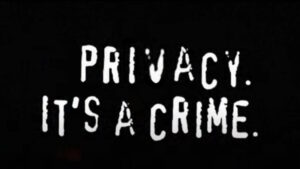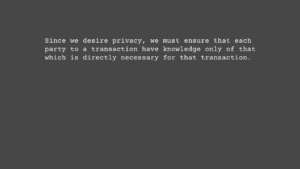The Eu’s Chat control bill reveals apparent degeneracy festering in the heart of European politicians. The proposed law will not only seize totalitarian control of all private communications, but it would also outlaw open source operating systems such as Linux.
Currently, the European Union is in the process of enacting the chat control law. It has been widely criticised for effectively creating a mass surveillance and censorship regime not dissimilar to the Chinese Communist party’s rapacious and pathological grip on its own citizens. The unelected government would be able to eavesdrop on all private communications.
‘Chat control’: an EU abomination
And that’s not all, the law would make it practically impossible for existing open source operating systems to function, including all major Linux distributions. This means banning the free F-Droid open source Android application archive.
Article 6 of the law requires all “software application stores” to:
- Assess whether each service provided by each software application enables human-to-human communication
- Verify whether each user is over or under the age of 17
- Prevent users under 17 from installing such communication software
Setting aside the absolute insanity of their stated intentions, it’s worth considering the implications for all open source software systems.
A “software application store” is defined by Article 2[*] to mean “a type of online intermediation services, which is focused on software applications as the intermediated product or service”.
These words are clearly referring to universal online software archives. These archives have been used by open source operating systems since the 1990s as their main method of software and security update distribution. Often, these archives are maintained by small firms or volunteer organisations. They are hosted by hundreds of organisations, such as universities and internet service providers around the world. As covered by privacy-advocates and VPN service provider Mullvad.net, one of the main volunteer-run Debian package archive, currently holds over 170,000 software packages.
The archival project function as anonymous machines, laptops servers or appliances for individuals to use freely. They are not based on individual human user identities, who may or may not use the services for applications entirely outside the control of the archives.
Conceptually, to be able to comply with this idiotic (or sinister) law would require a total restructuring of software installation and sourcing security updates, alongside a major rework of software distribution infrastructure. Frankly, the theoretical and practical costs would be incalculable.
But that pales in comparison to the warped motives of those who would dare raise this abominable bill in a free and open society.
If and when this law goes into effect, it would make open source software underpinning the majority of internet infrastructure, untold numbers of computers and networks used by software developers (among many other things), practically illegal. Complying with this law would require a global shut down of these servers and infrastructure, which cannot tell the difference between a web server, a Japanese software developer, a fridge or a teenager in Europe – by design.
This is the essence of what made the internet great, and a vehicle for human flourishing and information sharing the likes of which the world has never seen.
As such, it seems almost unbelievable that the authors of this law did not think about what they were doing when writing this abomination, the consequences of which would be enormous.
[*] To define a software application store the law makes a reference to the EU Digital Markets Act, Article 2, point 12 which defines “virtual assistant”. What they actually mean is point 14, which does define “software application store”.
EU Infringements against freedom
This is not the first time that EU politicians have targeted and undermined human rights. In fact, EU politicians have consistently levied hostile frameworks against decentralised technologies. In March 2022, the EU backed off from a controversial proof-of-work mining ban after a deluge of criticism obliged politicians to rethink the ill-conceived bill. In April that same year, 46 crypto executives pushed back against another EU bill that was set to undermine Europe’s progress in creating global privacy standards. Another surveillance proposal came in the form of CSAM, a communist-style surveillance program that uses child exploitation as a pretext to eliminate privacy.
Separately, Europe is also cracking down on physical cash transactions. On Nov. 6th, 2022, EU politicians agreed on a set of new directives that will make cash transactions more difficult, erroneously associating physical cash with criminal intention, despite it being legal tender. All in all, the European Union is tightening the noose. It is attempting to pigeon-hole citizens into various surveillance-regimes where physical cash transactions and privacy rights are a thing of the past.
Join the telegram channel for updates, charts, ideas and deals.
Did you like the article? Share it!


